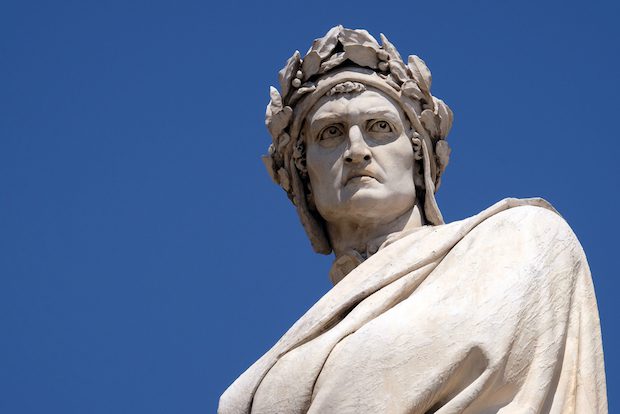The Necessity Of Trust

David Brooks writes today that the country is buried under an “avalanche of distrust.” Both presidential candidates are remarkably untrustworthy people, but they didn’t come from nowhere. Public and private trust is plummeting. Excerpt:
The true thing about distrust, in politics and in life generally, is that it is self-destructive. Distrustful people end up isolating themselves, alienating others and corroding their inner natures.
Over the past few decades, the decline in social trust has correlated to an epidemic of loneliness. In 1985, 10 percent of Americans said they had no close friend with whom they could discuss important matters. By 2004, 25 percent had no such friend.
When you refuse to lay yourself before others, others won’t lay themselves before you. An AARP study of Americans aged 45 and up found that 35 percent suffer from chronic loneliness, compared with 20 percent in a similar survey a decade ago. Suicide rates, which closely correlate with loneliness, have been spiking since 1999. The culture of distrust isn’t the only isolating factor, but it plays a role.
The rise of distrust correlates with a decline in community bonds and a surge of unmerited cynicism. Only 31 percent of millennials say there is a great deal of difference between the two political parties. Only 52 percent of adults say they are extremely proud to be Americans, down from 70 percent in 2003.
Reading this put me in mind of the fragmented world that produced Dante Alighieri. His exile in mid-life was the result of betrayal (specifically, by the pope). In the great poem he wrote from that exilic experience, the Divine Comedy, the Dante meditates at length of the importance of vows. Dante (both the poet and his fictional self) comes from a world where almost nobody can trust anybody else. Constant warfare has torn society apart. Urban dwellers lived in constant fear that during the night, a traitor in their midst might open the city gates and let in soldiers of the enemy city. Without trust, life became hell, and the Tuscans made it hell for themselves.
This is why the lowest circles in the Inferno — that is, the part of the pit of Hell closest to the bottom, where Satan dwells — is reserved for Traitors. There are four classes of traitor, the worst being Judecca, named for Judas Iscariot. All the damned punished there are frozen in ice, immovable for all eternity. In Dante’s imaginative scheme, the infernal punishments fit the earthly crime. A traitor lives and moves without loyalty to anything but himself. He is unconstrained by vows or obligations to God, his family, his lord, or anyone. In Hell, he cannot move at all, and has to endure the coldness that was in his heart, forever.
The collapse of social trust in medieval Tuscany had an enormous effect on social and political life. If you go to Florence today, you will notice that many of the oldest buildings look like fortresses. That’s because the wealthiest families of Dante’s day and afterward had to build their homes as towering refuges from attack by other Florentine families.
I wrote the other day in this space about sociologist Zygmunt Bauman’s concept of “liquid modernity.” It’s his description of the condition we in the West live under, in which cultural change happens so fast that no customs or institutions have time to solidify. Bauman writes that liquid modernity produces people who do not make vows or any kind of lasting connections, because that would impede their movement, and thus their ability to succeed. What makes for a successful person in liquid modernity?
To refuse to be ‘fixed’ one way or the other. Not to get tied to the place. Not to wed one’s life to one vocation only. Not to swear consistency and loyalty to anything and anybody. Not to control the future, but to refuse to mortgage it: to take care that the consequences of the game do not outlive the game itself, and to renounce responsibility for such as do. To forbid the past to bear on the present. In short, to cut the present off at both ends, to sever the present from history, to abolish time in any other form but a flat collection or an arbitrary sequence of present moments; a continuous present.
Once disassembled and no more a vector, time no longer structures the space. On the ground, there is no more ‘forward’ and ‘backward’; it is just the ability not to stand still that counts. Fitness — the capacity to move swiftly where the action is and be ready to take in experiences as they come — takes precedence over health, that idea of the standard of normalcy and of keeping that standard stable and unscathed. All delay, including ‘delay of gratification,’ loses its meaning: there is no arrow-like time left to measure it.
And so the snag is no longer how to discover, invent, construct, assemble (even buy) an identity, but how to prevent it from sticking. Well constructed and durable identity turns from an asset into a liability. The hub of postmodern life strategy is not identity-building, but avoidance of fixation. [Emphasis mine — RD]
How do you rebuild social trust when the values and structures (economic and cultural) condition people today to behave in ways that make that trust impossible to accumulate? In a culture that sees vows not as pillars of strength but obstacles to self-fulfillment, isn’t chronic suspicion a rational response?
Subscribe for as little as $5/mo to start commenting on Rod’s blog.